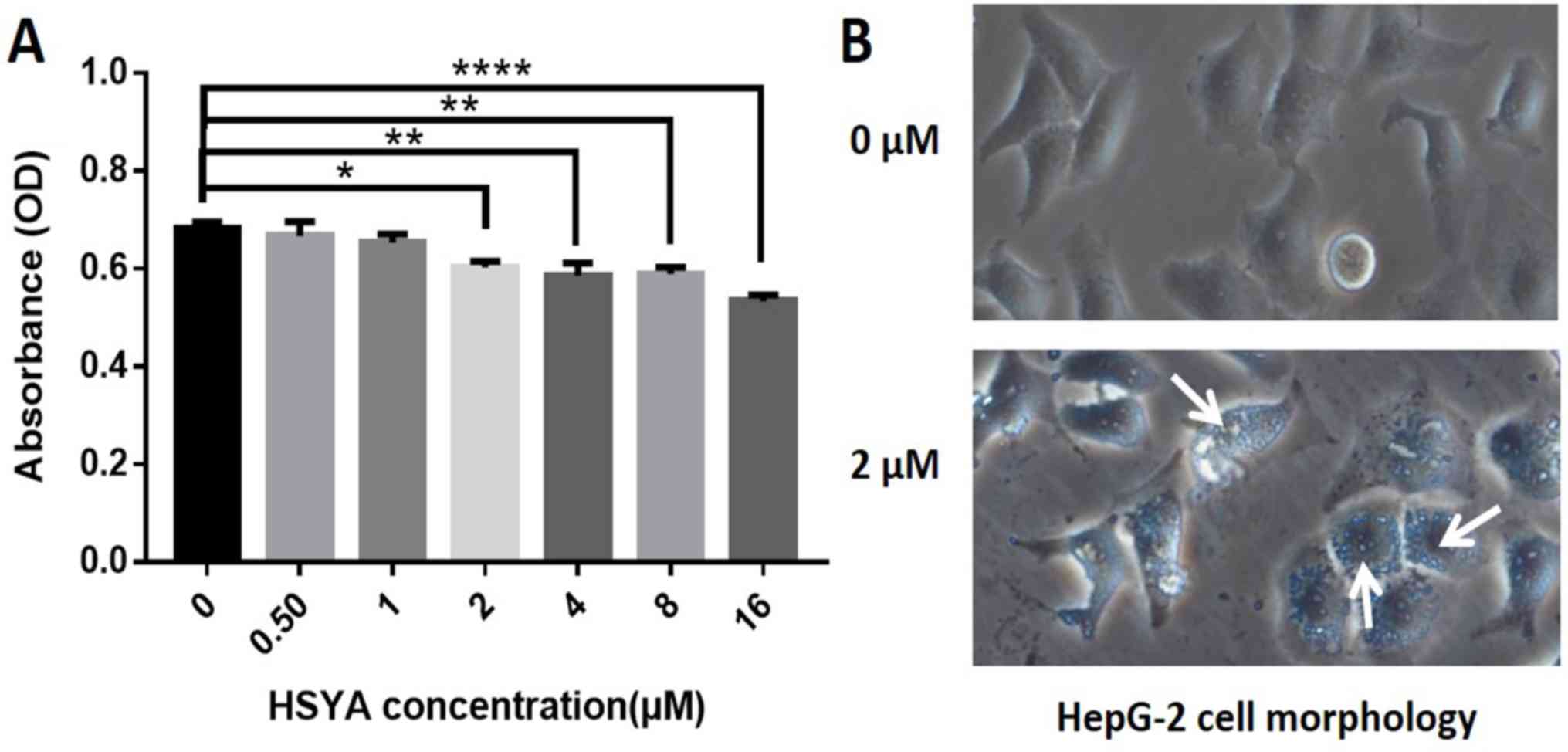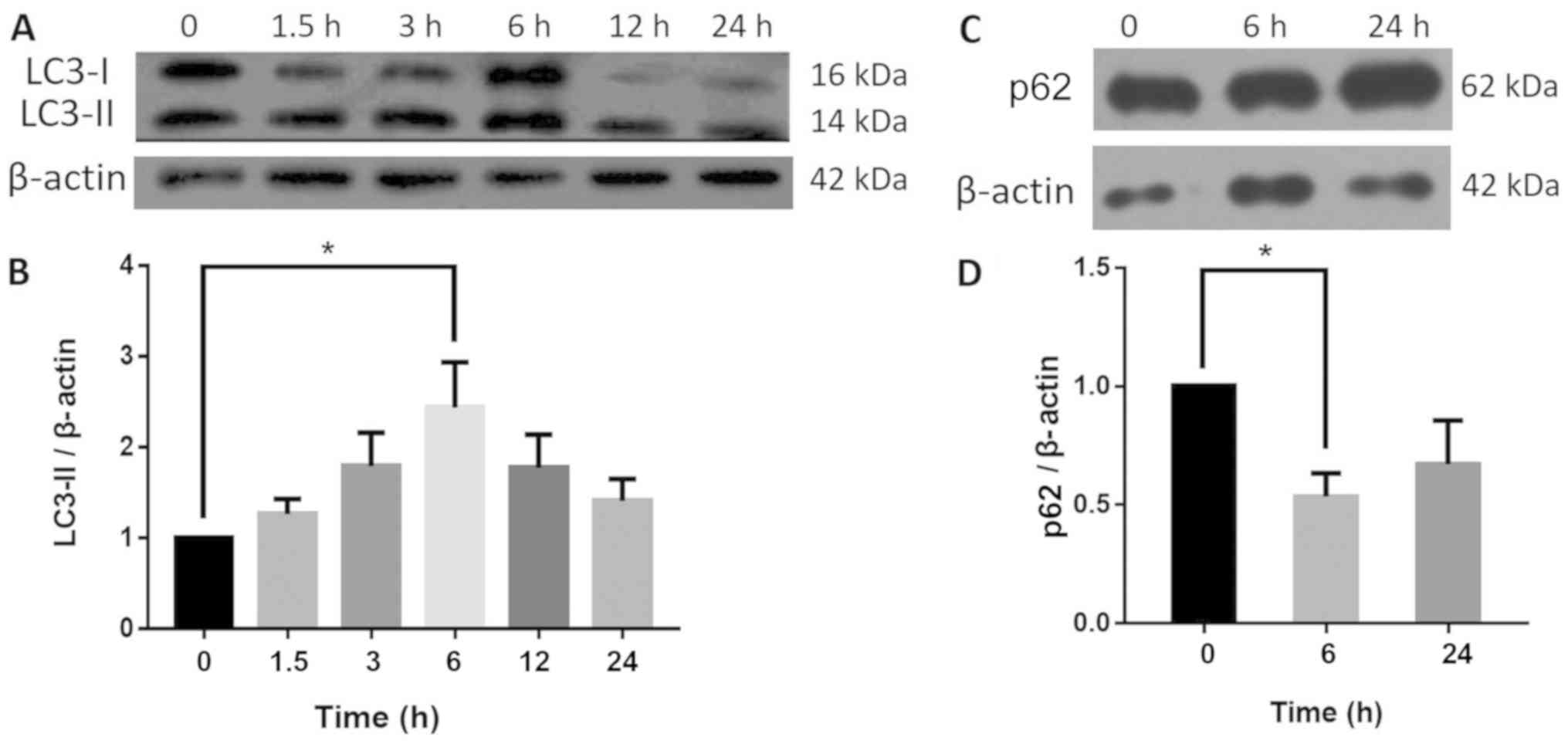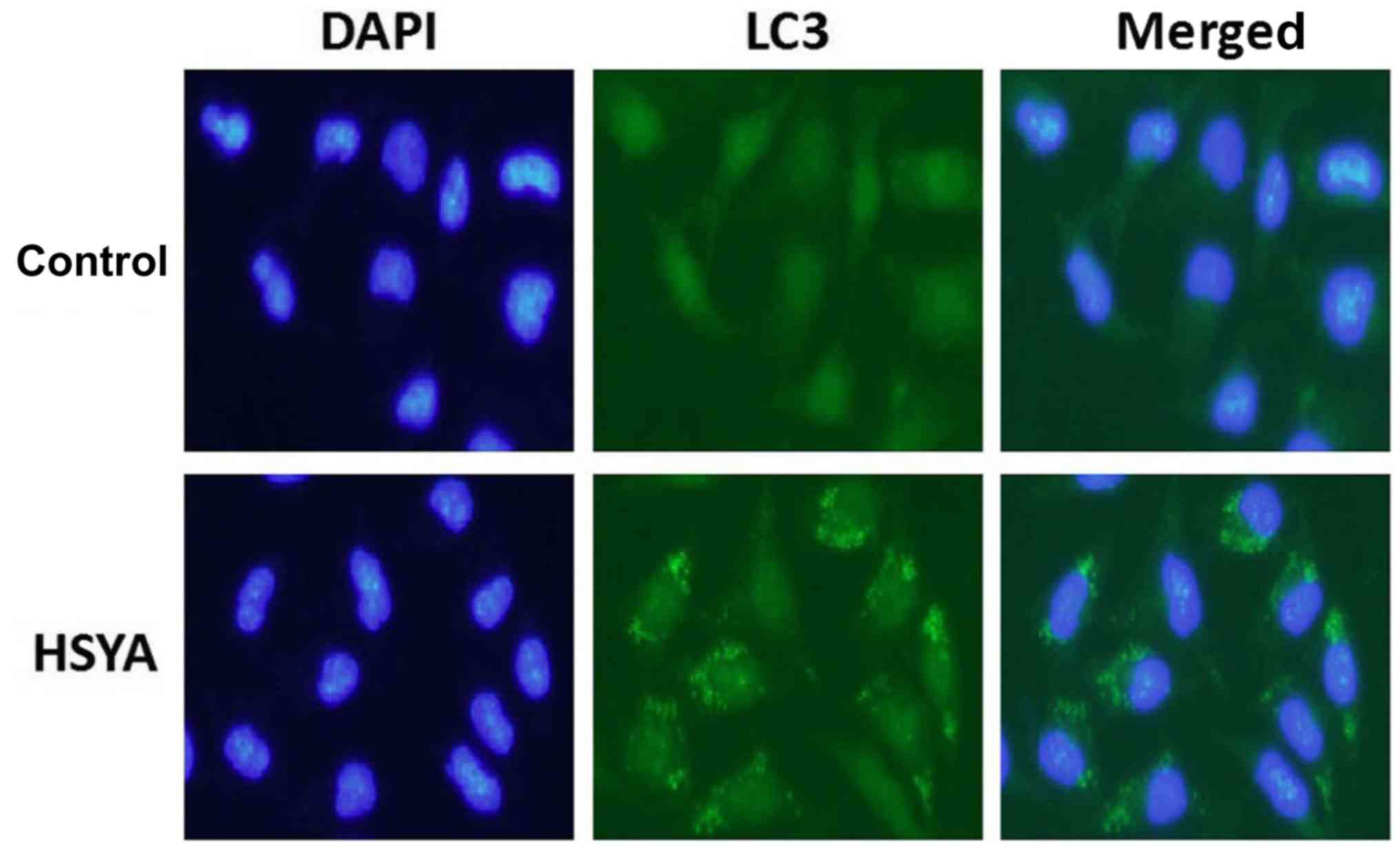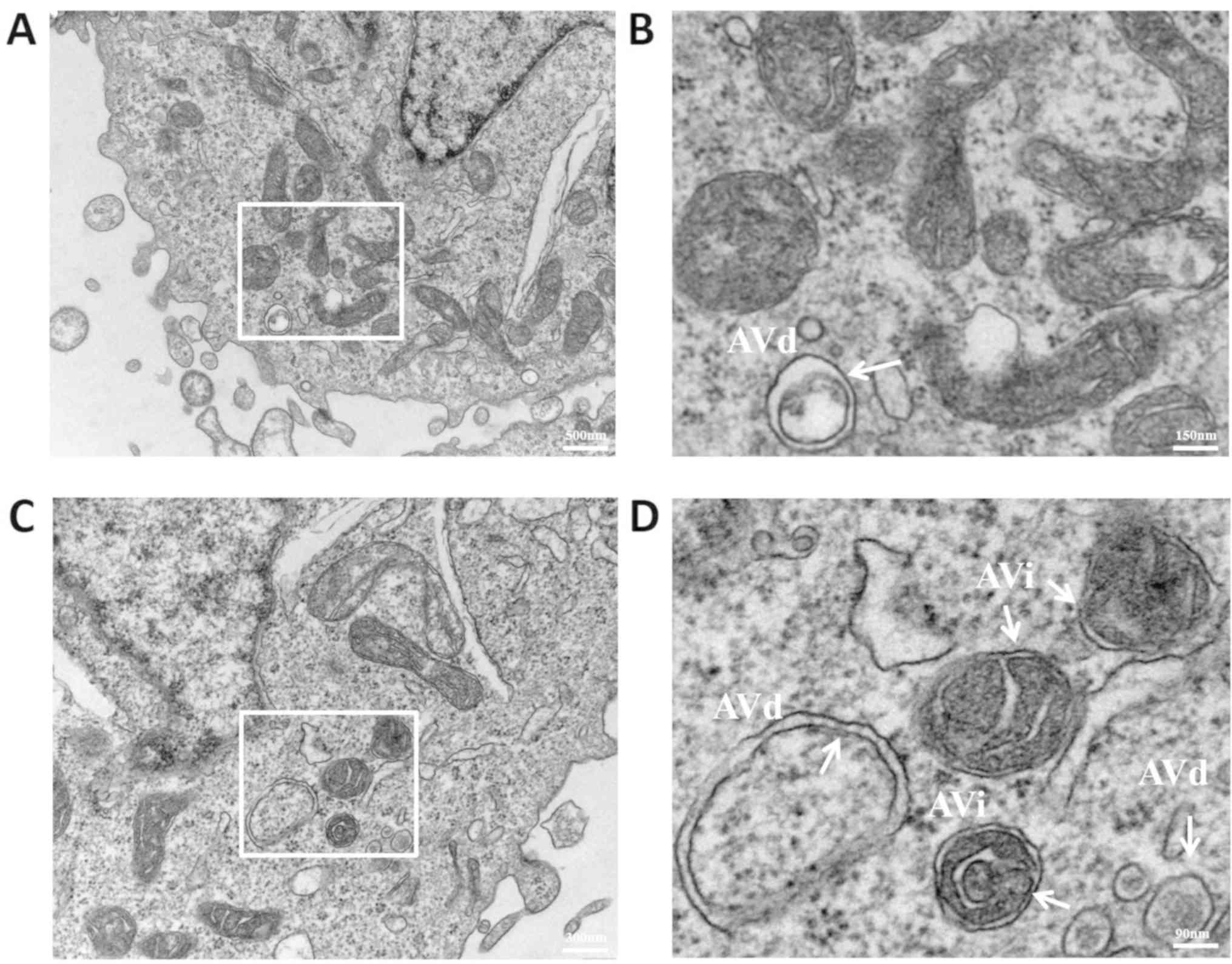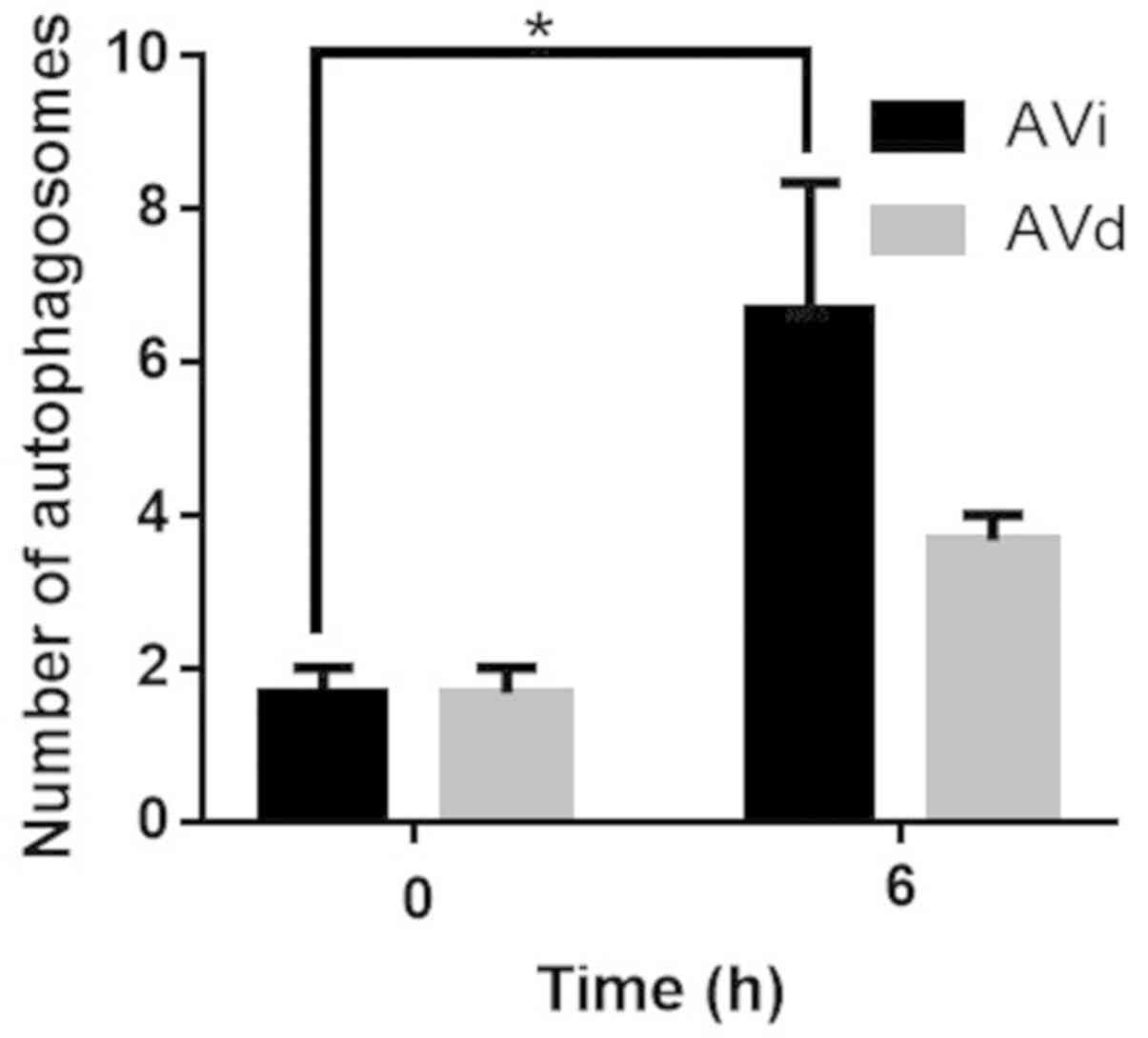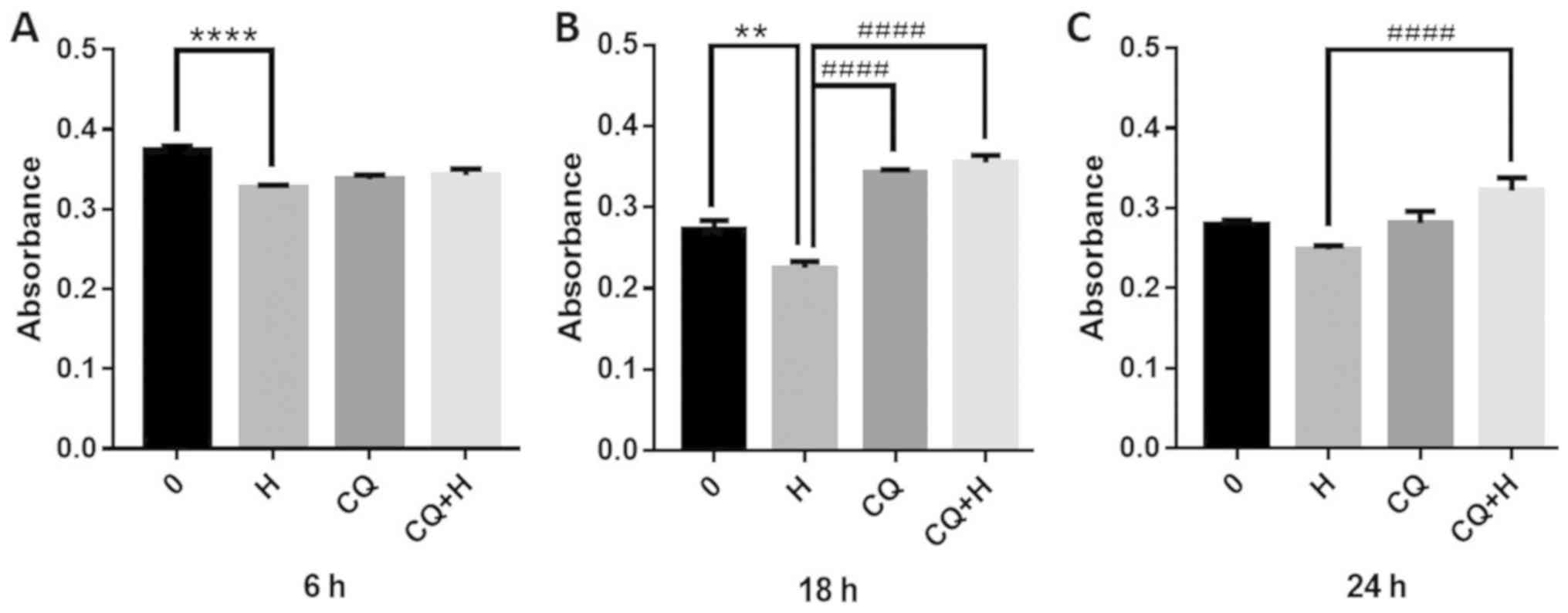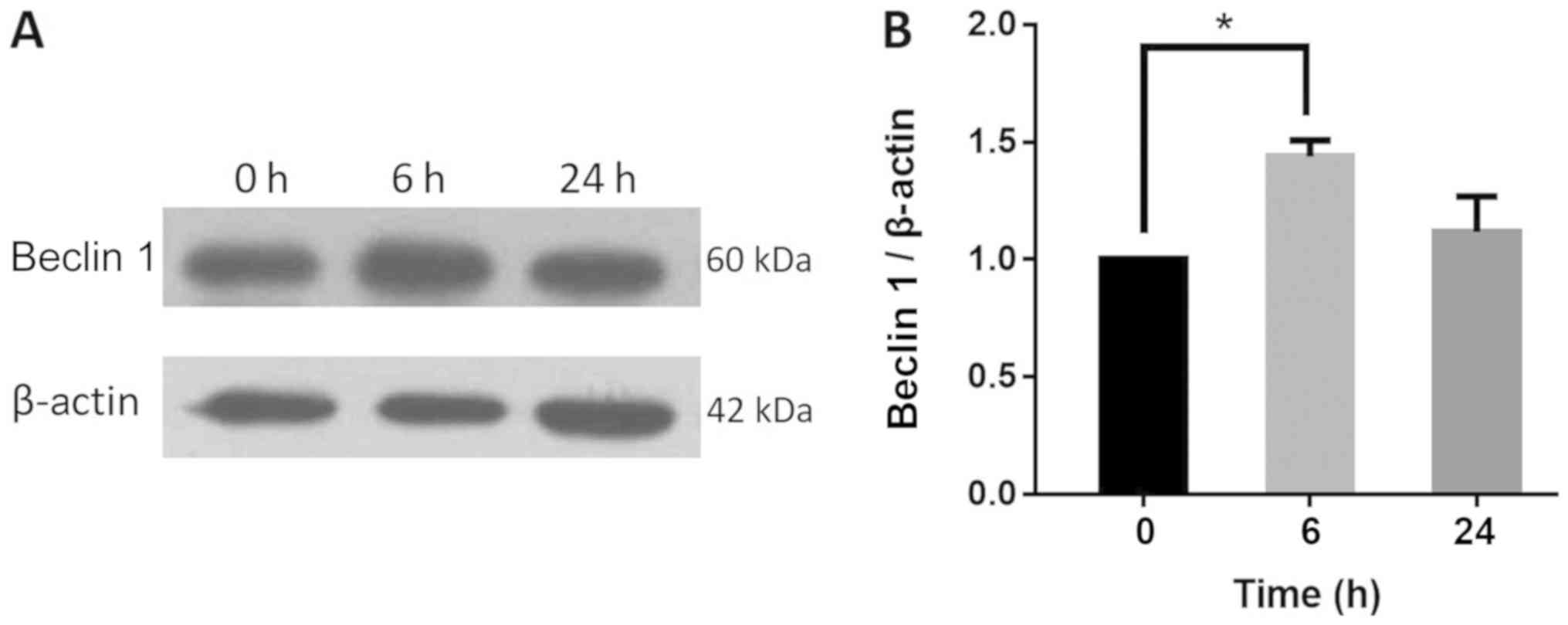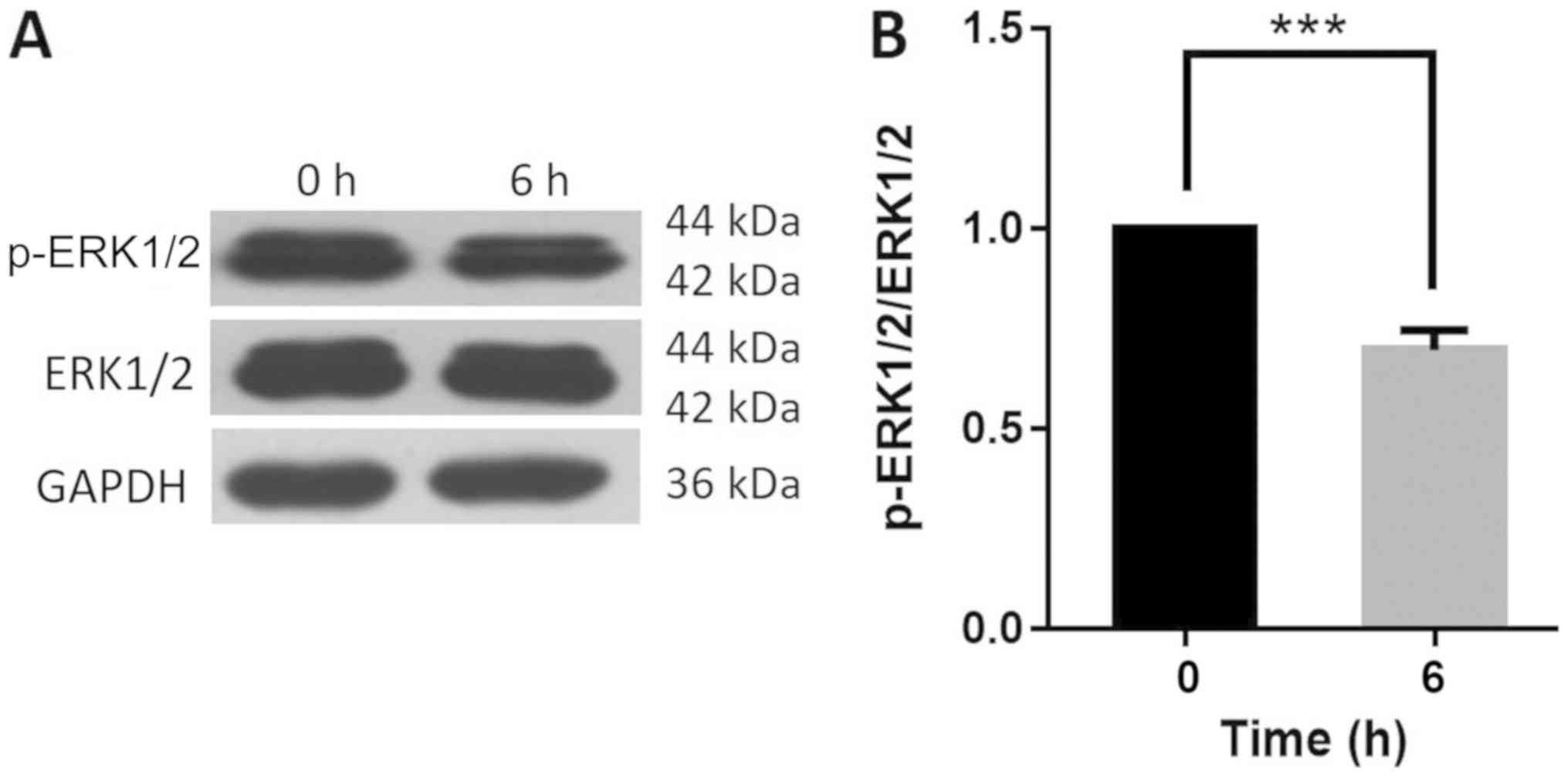|
1
|
Bray F, Ferlay J, Soerjomataram I, Siegel
RL, Torre LA and Jemal A: Global cancer statistics 2018: GLOBOCAN
estimates of incidence and mortality worldwide for 36 cancers in
185 countries. CA Cancer J Clin. 68:394–424. 2018.PubMed/NCBI View Article : Google Scholar
|
|
2
|
Qi F, Zhao L, Zhou A, Zhang B, Li A, Wang
Z and Han J: The advantages of using traditional Chinese medicine
as an adjunctive therapy in the whole course of cancer treatment
instead of only terminal stage of cancer. Biosci Trends. 9:16–34.
2015.PubMed/NCBI View Article : Google Scholar
|
|
3
|
Gao X, Wang Y, Li Y, Wang Y, Yan M, Sun H,
Chen S and Pan X: Huganpian, a traditional Chinese medicine,
inhibits liver cancer growth in vitro and in vivo by inducing
autophagy and cell cycle arrest. Biomed Pharmacother.
120(109469)2019.PubMed/NCBI View Article : Google Scholar
|
|
4
|
Liao X, Bu Y and Jia QA: Traditional
Chinese medicine as supportive care for the management of liver
cancer: Past, present, and future. Genes Dis.
2019.doi.org/10.1016/j.gendis.2019.10.016. View Article : Google Scholar
|
|
5
|
Xie G, Cui Z, Peng K, Zhou X, Xia Q and Xu
D: Aidi injection, a traditional Chinese medicine injection, could
be used as an adjuvant drug to improve quality of life of cancer
patients receiving chemotherapy: A propensity score matching
analysis. Integr Cancer Ther. 18(1534735418810799)2019.PubMed/NCBI View Article : Google Scholar
|
|
6
|
Jin M, Xue CJ, Wang Y, Dong F, Peng YY,
Zhang YD, Zang BX and Tan L: Protective effect of hydroxysafflor
yellow a on inflammatory injury in chronic obstructive pulmonary
disease rats. Chin J Integr Med. 25:750–756. 2019.PubMed/NCBI View Article : Google Scholar
|
|
7
|
Fan L, Pu R, Zhao HY, Liu X, Ma C, Wang BR
and Guo DA: Stability and degradation of hydroxysafflor yellow A
and anhydrosafflor yellow B in the safflower injection studied by
HPLC-DAD-ESI-MSn. J Chin Pharm Sci. 20:47–56. 2011. View Article : Google Scholar
|
|
8
|
Ao H, Feng W and Peng C: Hydroxysafflor
yellow A: A promising therapeutic agent for a broad spectrum of
diseases. Evid Based Complement Alternat Med.
2018(8259280)2018.PubMed/NCBI View Article : Google Scholar
|
|
9
|
Ma L, Liu L, Ma Y, Xie H, Yu X, Wang X,
Fan A, Ge D, Xu Y, Zhang Q and Song C: The role of
E-cadherin/β-catenin in hydroxysafflor yellow A inhibiting
adhesion, invasion, migration and lung metastasis of hepatoma
cells. Biol Pharm Bull. 40:1706–1715. 2017.PubMed/NCBI View Article : Google Scholar
|
|
10
|
Liu L, Si N, Ma Y, Ge D, Yu X, Fan A, Wang
X, Hu J, Wei P, Ma L, et al: Hydroxysafflor-yellow A induces human
gastric carcinoma BGC-823 cell apoptosis by activating peroxisome
proliferator-activated receptor gamma (PPARγ). Med Sci Monit.
24:803–811. 2018.PubMed/NCBI View Article : Google Scholar
|
|
11
|
Xi SY, Zhang Q, Liu CY, Xie H, Yue LF and
Gao XM: Effects of hydroxy safflower yellow-A on tumor capillary
angiogenesis in transplanted human gastric adenocarcinoma BGC-823
tumors in nude mice. J Tradit Chin Med. 32:243–248. 2012.PubMed/NCBI View Article : Google Scholar
|
|
12
|
Levine B and Klionsky DJ: Development by
self-digestion: Molecular mechanisms and biological functions of
autophagy. Dev Cell. 6:463–477. 2004.PubMed/NCBI View Article : Google Scholar
|
|
13
|
Liu W, Zeng X, Yin Y, Li C, Yang W, Wan W,
Shi L, Wang G, Tao K and Zhang P: Targeting the WEE1 kinase
strengthens the antitumor activity of imatinib via promoting KIT
autophagic degradation in gastrointestinal stromal tumors. Gastric
Cancer. 23:39–51. 2020.PubMed/NCBI View Article : Google Scholar
|
|
14
|
Dent P, Booth L and Poklepovic A:
Metabolism of histone deacetylase proteins opsonizes tumor cells to
checkpoint inhibitory immunotherapies. Immunometabolism.
2(e200002)2020.PubMed/NCBI View Article : Google Scholar
|
|
15
|
Deng X, Guan W, Qing X, Yang W, Que Y, Tan
L, Liang H, Zhang Z, Wang B, Liu X, et al: Ultrafast
low-temperature photothermal therapy activates autophagy and
recovers immunity for efficient antitumor treatment. ACS Appl Mater
Interfaces. 12:4265–4275. 2020.PubMed/NCBI View Article : Google Scholar
|
|
16
|
Rautou PE, Mansouri A, Lebrec D, Durand F,
Valla D and Moreau R: Autophagy in liver diseases. J Hepatol.
53:1123–1134. 2010.PubMed/NCBI View Article : Google Scholar
|
|
17
|
Tanida I, Ueno T and Kominami E: LC3
conjugation system in mammalian autophagy. Int J Biochem Cell Biol.
36:2503–2518. 2004.PubMed/NCBI View Article : Google Scholar
|
|
18
|
Liu J, Lin Y, Yang H, Deng Q, Chen G and
He J: The expression of p33(ING1), p53, and autophagy-related gene
Beclin1 in patients with non-small cell lung cancer. Tumour Biol.
32:1113–1121. 2011.PubMed/NCBI View Article : Google Scholar
|
|
19
|
Masuda S, Mizukami S, Eguchi A, Ichikawa
R, Nakamura M, Nakamura K, Okada R, Tanaka T, Shibutani M and
Yoshida T: Immunohistochemical expression of autophagosome markers
LC3 and p62 in preneoplastic liver foci in high fat diet-fed rats.
J Toxicol Sci. 44:565–574. 2019.PubMed/NCBI View Article : Google Scholar
|
|
20
|
Song H, Wang D, Li J, Yang Y, Mu X and Bai
X: Hydroxysafflor yellow A inhibits proliferation and migration of
human hepatocellular carcinoma cells and promotes apoptosis via
PI3K pathway. Tumor. 38:830–839. 2018.PubMed/NCBI View Article : Google Scholar
|
|
21
|
Zhang C, Jia XJ, Wang K, Bao JL, Li P,
Chen MW, Wan JB, Su HX, Mei ZN and He CW: Polyphyllin VII induces
an autophagic cell death by activation of the JNK pathway and
inhibition of PI3K/AKT/mTOR pathway in hepG2 cells. PLoS One.
11(e0147405)2016.PubMed/NCBI View Article : Google Scholar
|
|
22
|
Li T, Tang ZH, Xu WS, Wu GS, Wang YF,
Chang LL, Zhu H, Chen XP, Wang YT, Chen Y and Lu JJ: Platycodin D
triggers autophagy through activation of extracellular
signal-regulated kinase in hepatocellular carcinoma HepG2 cells.
Eur J Pharmacol. 749:81–88. 2015.PubMed/NCBI View Article : Google Scholar
|
|
23
|
Li T, Wen L and Cheng B: Cordycepin
alleviates hepatic lipid accumulation by inducing protective
autophagy via PKA/mTOR pathway. Biochem Biophys Res Commun.
516:632–638. 2019.PubMed/NCBI View Article : Google Scholar
|
|
24
|
Lu Y, Zhang R, Liu S, Zhao Y, Gao J and
Zhu L: ZT-25, a new vacuolar H(+)-ATPase inhibitor, induces
apoptosis and protective autophagy through ROS generation in HepG2
cells. Eur J Pharmacol. 771:130–138. 2016.PubMed/NCBI View Article : Google Scholar
|
|
25
|
Eskelinen EL: Fine structure of the
autophagosome. Methods Mol Biol. 445:11–28. 2008.PubMed/NCBI View Article : Google Scholar
|
|
26
|
Wang M, Qiu S and Qin J: Baicalein induced
apoptosis and autophagy of undifferentiated thyroid cancer cells by
the ERK/PI3K/Akt pathway. Am J Transl Res. 11:3341–3352.
2019.PubMed/NCBI
|
|
27
|
Li HH, Song XX, Liu B and Yang WP:
UNBS5162 as a novel naphthalimide holds efficacy in human gastric
carcinoma cell behaviors mediated by AKT/ERK signaling pathway.
Drug Dev Ind Pharm. 45:1306–1312. 2019.PubMed/NCBI View Article : Google Scholar
|
|
28
|
Sia D, Villanueva A, Friedman SL and
Llovet JM: Liver cancer cell of origin, molecular class, and
effects on patient prognosis. Gastroenterology. 152:745–761.
2017.PubMed/NCBI View Article : Google Scholar
|
|
29
|
Si N, Wang J, Xu Y, Liu L, Wang X, Sun H,
Lin Z, Wang X, Liu L, Zhang Q, et al: Inductive effect of hydroxyl
safflower yellow-A on apoptosis in abnormal HUVEC via the
mitochondrial pathway. J Trad Chin Med Sci. 2:25–31.
2015.PubMed/NCBI
|
|
30
|
Li J, Zhang S, Lu M, Chen Z, Chen C, Han
L, Zhang M and Xu Y: Hydroxysafflor yellow A suppresses
inflammatory responses of BV2 microglia after oxygen-glucose
deprivation. Neurosci Lett. 535:51–56. 2013.PubMed/NCBI View Article : Google Scholar
|
|
31
|
Hale AN, Ledbetter DJ and Gawriluk TR and
Rucker EB 3rd: Autophagy: Regulation and role in development.
Autophagy. 9:951–972. 2013.PubMed/NCBI View Article : Google Scholar
|
|
32
|
Yang Y, He P and Li N: The antitumor
potential of extract of the oak bracket medicinal mushroom inonotus
baumii in SMMC-7721 tumor cells. Evid Based Complement Alternat
Med. 2019(1242784)2019.PubMed/NCBI View Article : Google Scholar
|
|
33
|
He W, Wang Q, Srinivasan B, Xu J, Padilla
MT, Li Z, Wang X, Liu Y, Gou X, Shen HM, et al: A JNK-mediated
autophagy pathway that triggers c-IAP degradation and necroptosis
for anticancer chemotherapy. Oncogene. 33:3004–3013.
2014.PubMed/NCBI View Article : Google Scholar
|
|
34
|
Sutton MN, Huang GY, Liang X, Sharma R,
Reger AS, Mao W, Pang L, Rask PJ, Lee K, Gray JP, et al:
DIRAS3-Derived peptide inhibits autophagy in ovarian cancer cells
by binding to Beclin1. Cancers (Basel). 11(E557)2019.PubMed/NCBI View Article : Google Scholar
|
|
35
|
Kang R, Zeh HJ, Lotze MT and Tang D: The
Beclin 1 network regulates autophagy and apoptosis. Cell Death
Differ. 18:571–580. 2011.PubMed/NCBI View Article : Google Scholar
|
|
36
|
Ma L, Chen Z, Erdjument-Bromage H, Tempst
P and Pandolfi PP: Phosphorylation and functional inactivation of
TSC2 by Erk implications for tuberous sclerosis and cancer
pathogenesis. Cell. 121:179–193. 2005.PubMed/NCBI View Article : Google Scholar
|
|
37
|
Zhu J, Liao S, Zhou L and Wan L:
Tanshinone IIA attenuates Aβ25-35-induced spatial memory
impairment via upregulating receptors for activated C kinase1 and
inhibiting autophagy in hippocampus. J Pharm Pharmacol. 69:191–201.
2016.PubMed/NCBI View Article : Google Scholar
|
|
38
|
Pan H, Wang Y, Na K, Wang Y, Wang L, Li Z,
Guo C, Guo D and Wang X: Autophagic flux disruption contributes to
Ganoderma lucidum polysaccharide-induced apoptosis in human
colorectal cancer cells via MAPK/ERK activation. Cell Death Dis.
10(456)2019.PubMed/NCBI View Article : Google Scholar
|















